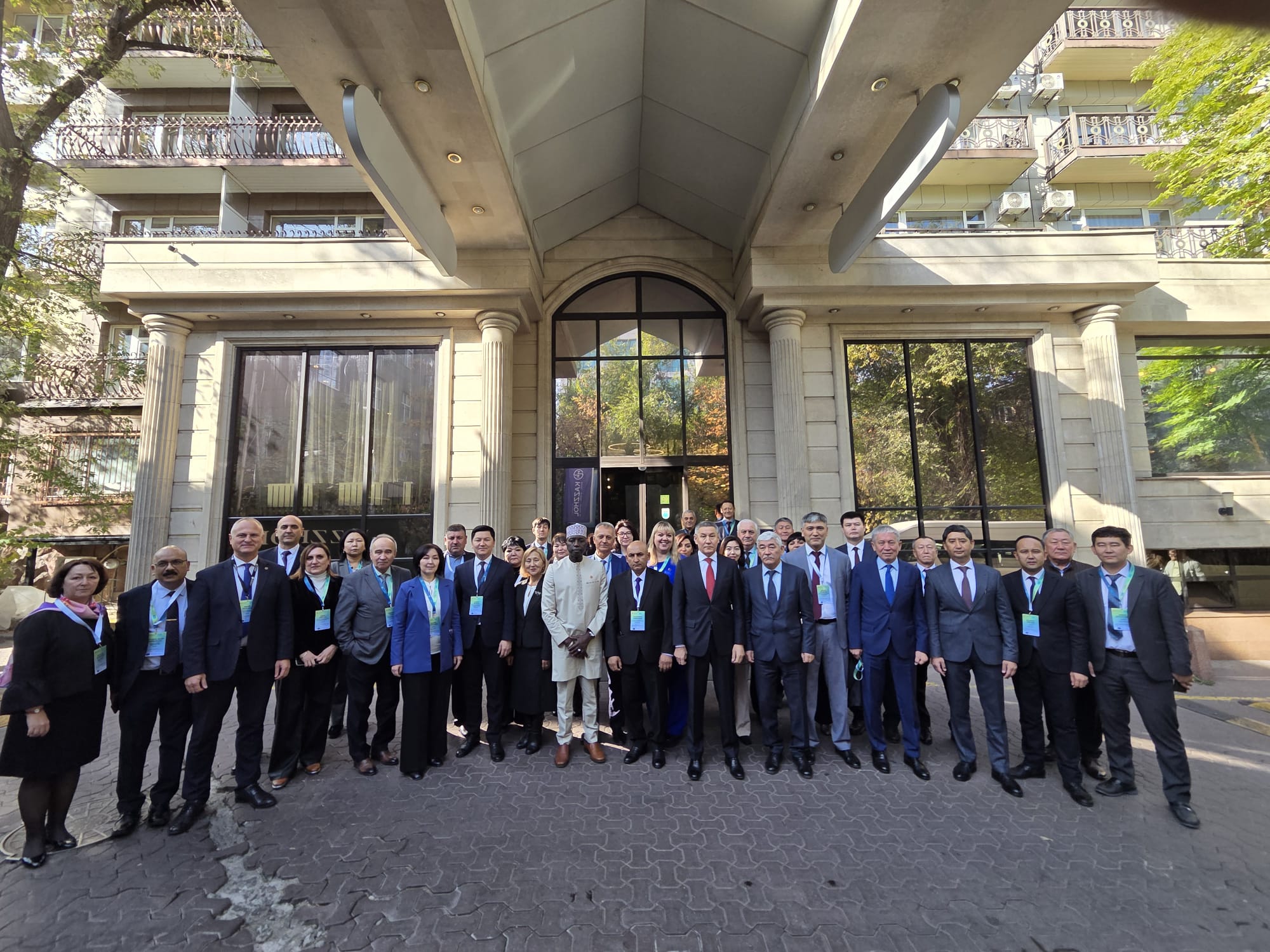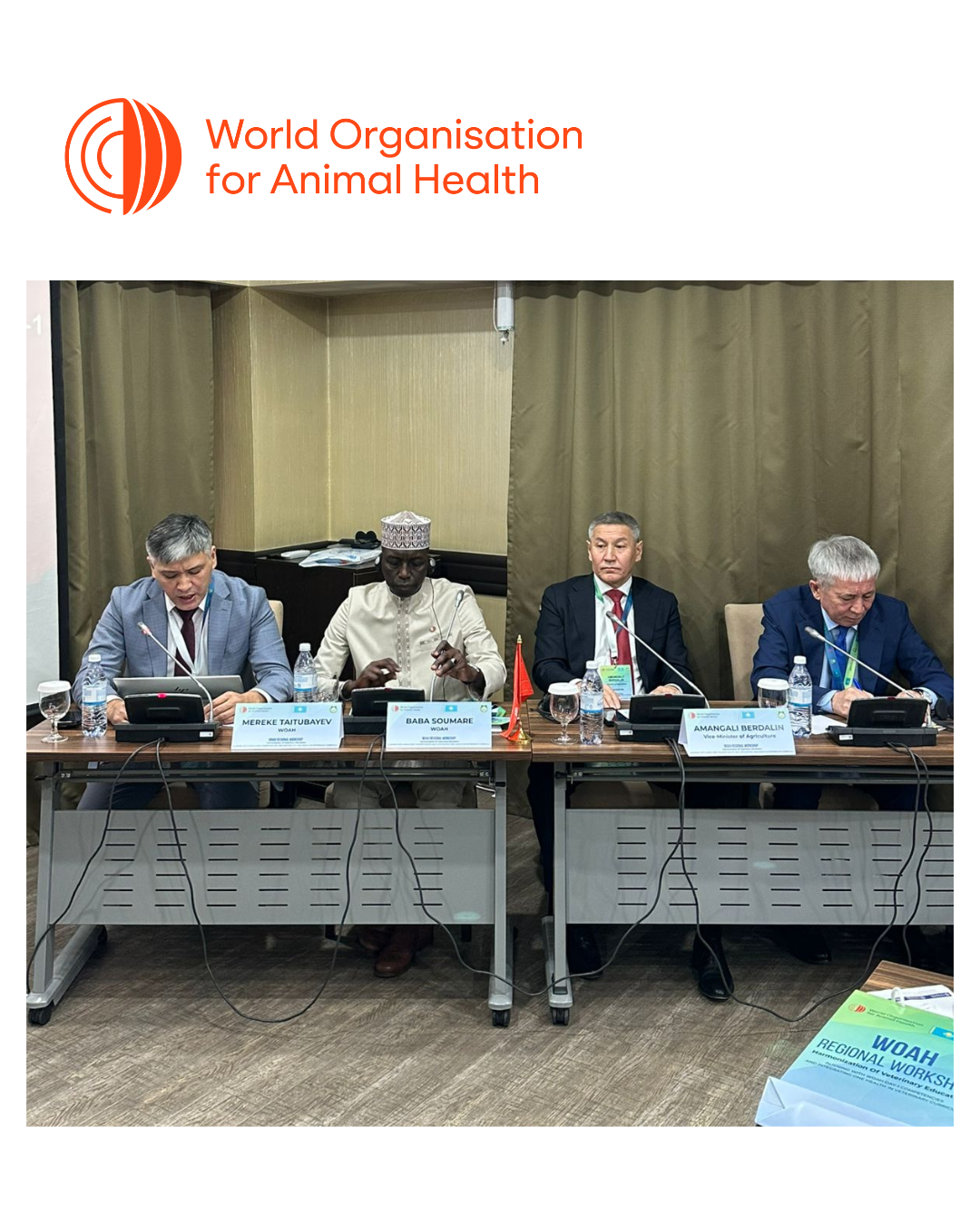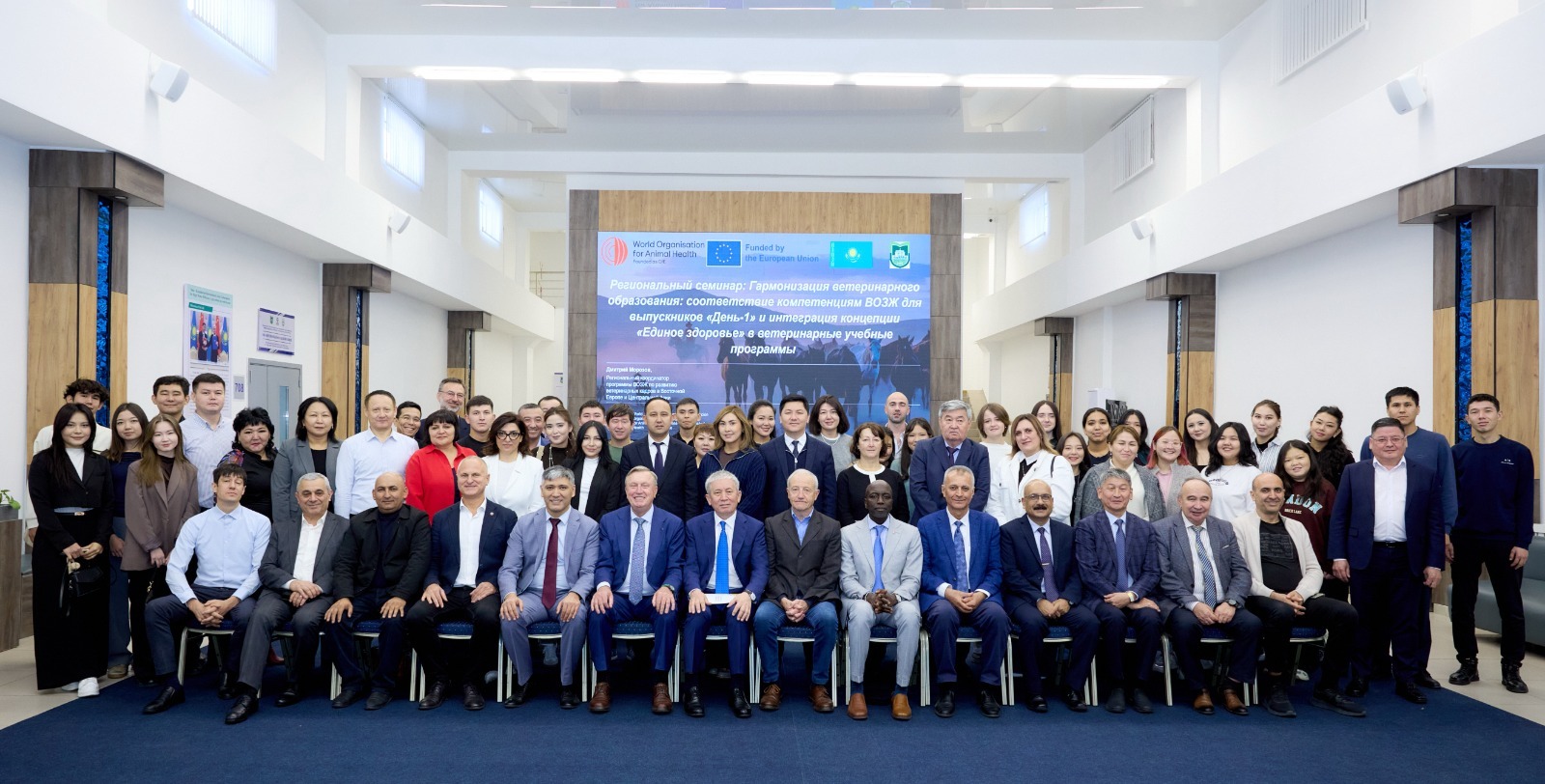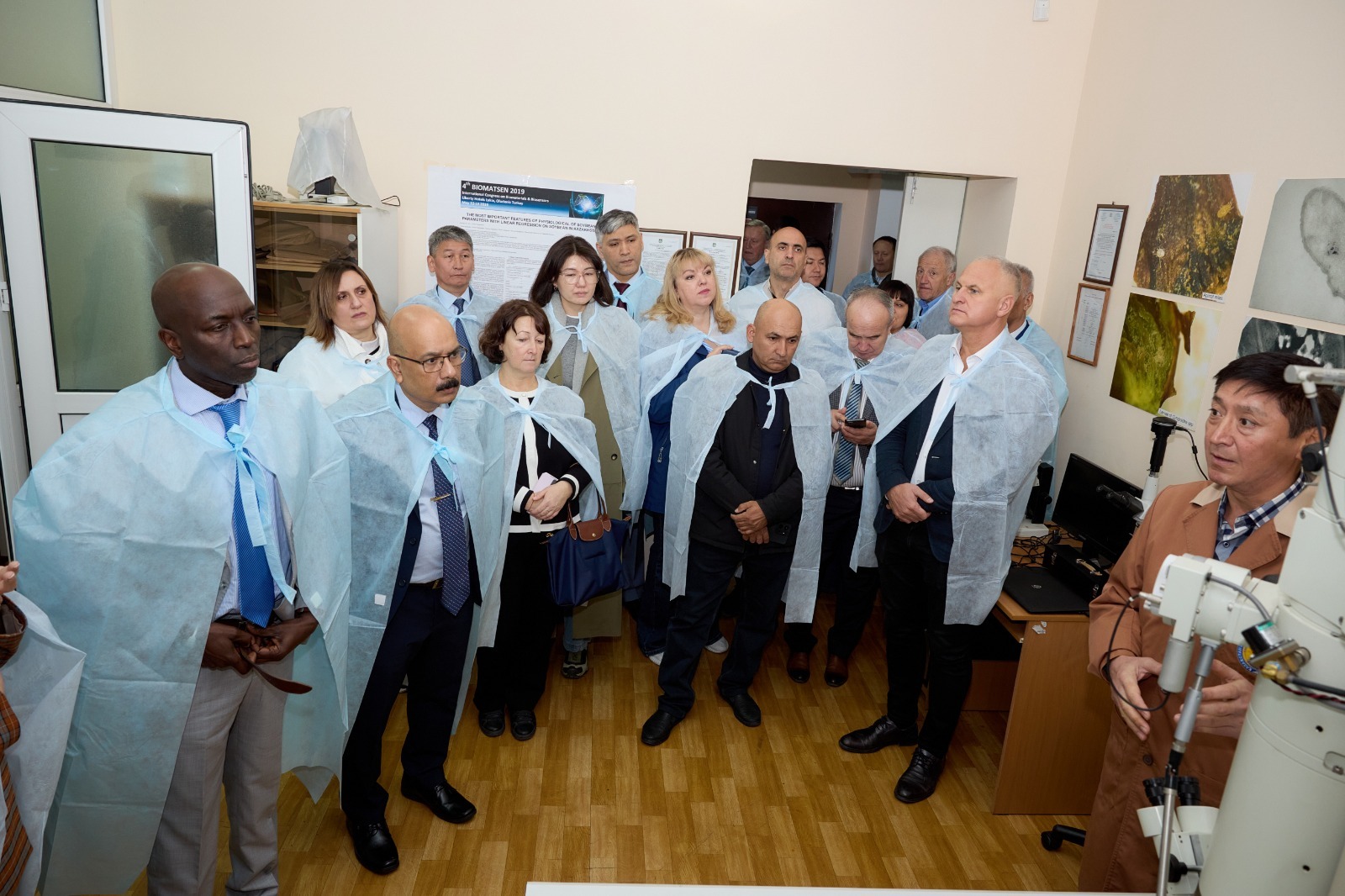WOAH in collaboration with the Ministry of Agriculture of Kazakhstan, the Committee for Veterinary Control and Surveillance and the Kazakh National Agrarian Research University (KNARU), successfully held the Regional Workshop on Harmonization of Veterinary Education: Aligning with WOAH Day-1 Competencies and Integrating One Health in Veterinary Curricula.
The event brought together more than 30 representatives (rectors, deans, and national veterinary authorities) from Kazakhstan, Uzbekistan, Kyrgyzstan, Tajikistan, Armenia, Azerbaijan, Georgia, Russia and Belarus, as well as experts from the WHO, the European Association of Establishments for Veterinary Education (EAEVE), University of Minnesota (USA), Lusofona University, Lisbon, Portugal.
A Platform for Regional Collaboration and Learning
The three-day workshop served as a regional platform for discussion and cooperation on strengthening veterinary education and workforce development. Participants examined ways to align veterinary curricula with WOAH Day-1 Competencies, integrate the One Health approach, and promote international mobility, continuing the professional development (CPD) and approaches to international accreditation of veterinary faculties.
Sessions during the first two days included group work, panel discussions, and presentations on:
The workshop also encouraged universities to use WOAH tools such as the PVS Pathway, Veterinary Education Twinning Projects Guidelines, and the WOAH Training Platform to address national and regional priorities.
Opening remarks
The workshop opened with welcoming addresses from Mr. Amangaliy Berdalin, Vice Minister of Agriculture of Kazakhstan, Dr Baba Soumare, WOAH Deputy Director General; Dr Taskyn Kyzaibayev, WOAH Delegate of Kazakhstan; and Dr Mereke Taitubayev, Head of the WOAH Sub-Regional Representation for Central Asia.
Active Engagement of Universities and International Partners
Speakers and facilitators from WOAH, WHO, EAEVE, University of Minnesota (USA), Lusophone University of Lisbon (Portugal), as well as Kazakhstan and Uzbekistan Universities.
Participating universities ranged from newly established institutions to century-old veterinary schools, reflecting diverse experiences and contexts. Their active involvement demonstrated a strong commitment to advancing veterinary education reform, adopting innovative teaching approaches, and strengthening international collaboration.
Day 3 – Field Visit to KazNARU
The final day of the workshop took place at Kazakh National Agrarian Research University (KazNARU). Participants were welcomed by Professor Primkul Ibragimov, First Vice-Rector of KNARU, who highlighted the importance of regional cooperation in modernizing veterinary education.
Dr Morozov presented a summary of the two-day workshop, outlining the key conclusions and agreements reached by the participants.
During the visit, participants met with faculty members, researchers, and students of KNARU, exchanging views on practical training, curriculum reform, and innovation in veterinary science.
The tour included visits to the university’s modern laboratories and research centres showcasing KNARU’s achievements in veterinary medicine, biotechnology, and food safety.
The engagement of students, master’s, and doctoral candidates in discussions underlined the continuity of generations and the shared vision for professional excellence in veterinary education
The workshop concluded with agreement on a set of follow-up actions, including:
By fostering dialogue and partnership across borders, the workshop reaffirmed WOAH’s commitment to supporting veterinary education reform and workforce development as integral components of resilient animal health and welfare systems.
Related Materials:



